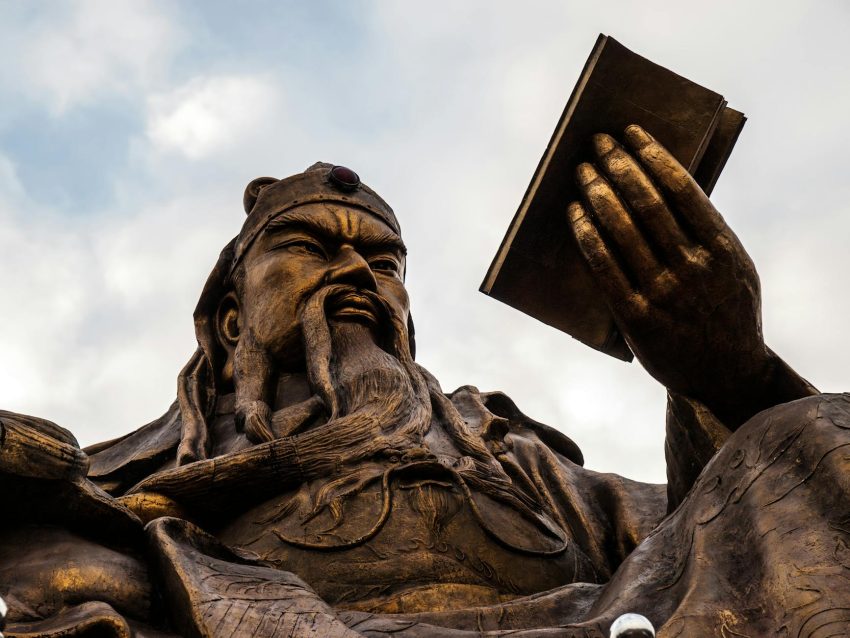In a rapidly changing world, the story of Taiwan offers valuable lessons in strength and resilience. Historical challenges have shaped the island’s identity, forging a spirit of determination that resonates throughout its culture. Moreover, the active civic engagement and profound social solidarity among its people exemplify how community bonds fortify society in times of adversity. Taiwan’s dynamic economic innovations further illustrate the vital role of adaptability in building national strength. By exploring these themes, we uncover the essence of what Taiwan Strength truly means and how it can inspire other nations facing their own trials.
The Historical Resilience of Taiwan
Taiwan’s journey through history is a testament to its remarkable resilience. From being a colony under various foreign powers to defining its own identity amidst geopolitical tensions, Taiwan has continually demonstrated the ability to adapt and persevere. One pivotal moment occurred during the 20th century when Taiwan transitioned from Japanese rule to becoming a province of the Republic of China (ROC). This shift brought about significant changes that have shaped the nation’s narrative of resilience.
Following World War II, Taiwan faced challenges including political upheaval and economic instability. However, the Taiwanese people exhibited incredible fortitude. Through the implementation of land reforms and the aid received from the United States during the Cold War, Taiwan began to modernize rapidly. The efforts to establish a strong industrial base not only bolstered the economy but also fostered a sense of Taiwan Strength, uniting citizens around a common goal of progress and prosperity.
Moreover, Taiwan’s experience with natural disasters serves as a further illustration of its resilient spirit. The devastating earthquake in 1999 prompted the government and citizens alike to implement better building codes and disaster preparedness measures. This collective response showcased not just survival but a commitment to improvement, reinforcing the nation’s ability to rise in the face of adversity.
Today, Taiwan’s historical resilience continues to inform its approach to current challenges, such as international relations and environmental issues. By drawing on lessons from the past, Taiwan Strength is evident in its innovative responses that tackle modern problems while still paying homage to its rich history. As such, Taiwan stands as a powerful example of how resilience, rooted in history, shapes a nation’s identity and fortifies its citizens’ commitment to a prosperous future.

Civic Engagement and Social Solidarity in Taiwanese Society
Civic engagement and social solidarity are pivotal components of Taiwan Strength, illustrating how citizens come together to address common challenges while fostering a sense of community. In Taiwan, civic engagement manifests through active participation in democratic processes, organizing local initiatives, and volunteering for various social causes. This robust involvement has not only enriched the societal fabric but has also cultivated a deeper sense of national identity.
Notably, Taiwan’s democratic evolution has empowered citizens to voice their opinions and influence policy decisions. Regular public forums and town hall meetings allow individuals from diverse backgrounds to discuss pressing issues, ranging from environmental concerns to social justice. Additionally, the rise of digital platforms has further amplified civic engagement, enabling activists to mobilize support for various movements. For instance, the Sunflower Movement in 2014 exemplified the power of collective action, as thousands gathered to protest against perceived government overreach, showing how grassroots efforts can spark significant political dialogue.
Moreover, social solidarity in Taiwan shines through community-driven initiatives that tackle social disparities and support marginalized groups. Numerous non-profit organizations work tirelessly to provide resources and advocacy for those in need, fostering a culture of empathy and care. Events such as community clean-ups, cultural festivals, and educational workshops are typical examples of how citizens come together to strengthen communal ties and promote inclusivity.
The spirit of cooperation is also evident in Taiwan’s response to crises. During natural disasters, individuals, businesses, and government agencies unite to provide immediate assistance, demonstrating an unwavering commitment to collective well-being. This approach not only mitigates the effects of adversity but also reinforces the idea that together they are stronger. Through these examples, it’s clear that civic engagement and social solidarity significantly enhance Taiwan’s resilience, making it a shining example of how community-driven efforts can lead to sustained national strength.
Economic Innovations and Their Role in Building National Strength
Taiwan has long been recognized for its remarkable economic trajectory, transforming from an agrarian society to a high-tech powerhouse within a few decades. Economic innovations play a pivotal role in this transformation, not only fostering domestic stability but also reinforcing Taiwan Strength on the global stage. By embracing technological advancements and entrepreneurial spirit, Taiwan has laid a robust foundation for its economy and its people.
One of the core components of Taiwan’s economic innovations is the semiconductor industry, which contributes a staggering portion of the nation’s GDP. Companies like Taiwan Semiconductor Manufacturing Company (TSMC) have positioned Taiwan as the world’s largest contract chip manufacturer. This specialization has not only catalyzed growth within the tech sector but has also been a driving force behind international collaborations, making Taiwan indispensable to the global supply chain.
In addition, Taiwan’s commitment to research and development has nurtured a culture of innovation. The government has invested heavily in various programs aimed at supporting startups and encouraging the adoption of cutting-edge technologies. Incubators and accelerators flourish, providing resources for young entrepreneurs to turn their ideas into viable businesses. This thriving entrepreneurial ecosystem leads to job creation, which subsequently fuels consumer spending and domestic growth.
Furthermore, Taiwan’s advancements in sustainable practices have set an example for other nations. By prioritizing green technologies and renewable energy sources, Taiwan demonstrates that an economy can grow while respecting environmental limits. This forward-thinking mindset not only enhances the quality of life for its citizens but also reinforces its global standing as a responsible economic leader.
Through these economic innovations, Taiwan successfully exemplifies how a nation can harness its collective talents and embrace change. As Taiwan continues to innovate, it solidifies its position as a resilient economy, showcasing an impressive model of how Taiwan Strength can be achieved through creativity, technology, and sustainable practices.
Frequently Asked Questions
What aspects of strength does Taiwan exemplify in its history?
Taiwan’s history showcases resilience and strength in various aspects, including its struggle for democracy, economic transformation, and cultural preservation. The island has experienced substantial political challenges and pressures, especially from larger neighboring countries. Despite this, Taiwan has managed to establish a robust democratic system, thriving technology sector, and a vibrant culture that celebrates its heritage while welcoming modern influences. This adaptability and perseverance serve as a powerful testament to the strength of its people.
How does Taiwan’s approach to community and cooperation reflect its strength?
Taiwan’s strength is significantly demonstrated through its community engagement and cooperation among its citizens. The island places a high value on collective effort, with numerous volunteer organizations and local initiatives responding swiftly to social needs. This communal spirit fosters resilience and unity, particularly evident during crises such as natural disasters or public health emergencies. Taiwan’s effective response to the COVID-19 pandemic illustrated how collective responsibility and cooperation can enhance societal strength and stability.
In what ways can others learn from Taiwan’s resilience in the face of challenges?
Others can learn from Taiwan’s resilience by emphasizing the importance of adaptability, proactive governance, and investing in education and innovation. Taiwan has shown that a commitment to democracy and civic engagement can empower individuals and foster a strong societal framework, even in uncertain times. Additionally, Taiwan’s focus on technological advancement not only boosts its economy but also enhances its capacity to respond effectively to challenges, providing a model for other nations aiming for sustainable growth and resilience.
